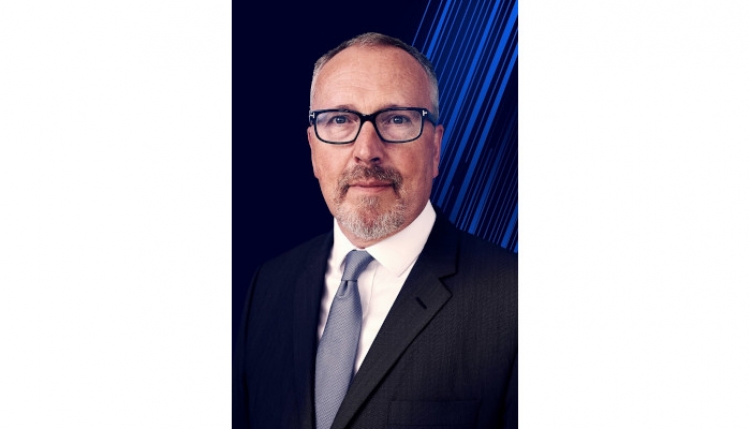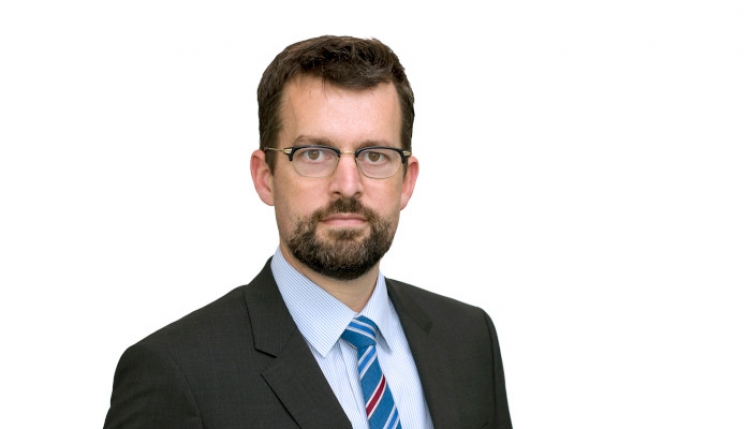Steen Jakobsen, Chief Economist, CIO & Co-head of Global Sales Trading at Saxo Bank, the leading online multi-asset trading and investment specialist, delivered an economic forecast of how top trending issues, including China, electrification, cryptocurrencies, recession and politics will shape financial markets in 2018, during a Saxo Bank event in Dubai.
Jakobsen outlined China’s growing influence and position on the global stage and how it will impact market prices and commodities against the US dollar. “With China controlling 50% of growth and credit in the world, it remains the most important country in terms of its credit impulse and trending behaviours,” said Jakobsen.
Jakobsen predicts that China will be the main driver of one of the most significant innovations the world has witnessed – electrification - and, specifically, electric vehicles. With pollution standing out as China’s biggest national issue, electric transportation will form a vital part of the country’s ambitions for world leadership and the move towards electrification has gained in significance – courtesy of Volvo’s 2020 plans to electrify its entire model line-up, while leading Chinese car manufacturer BYD expects all cars to be fully electrified by 2030.
Jakobsen also pointed to the monopoly-like condition in the technology sector as something that could be on the radar in 2018. He added: “Leading tech giants such as Google, Amazon and Apple all operate under monopoly-like status and with little to no competition, which explains their massive profitability. These high profits are due to a lack of market regulation that allows big players to keep a monopoly pricing structure on their consumers leading to negative economic consequences on the future of productivity, investment, and research and development,” said Jakobsen.
Cryptocurrencies and bitcoin were also discussed, with Jakobsen predicting changes in 2018, adding: “Bitcoin is supposed to be a decentralised, anti-government and anti-establishment cryptocurrency but all the players are on the internet, which is the most regulated place in the world. Soon enough we will have an anti-government coin being regulated by governments. To some extent, this is a great irony.”
Jakobsen explains that the future market of bitcoin is difficult to predict as, while cryptocurrency is popular because it trades like a one-way street - when there are bigger futures exchanges, such as CME and CBOE listing bitcoin and cryptocurrencies, it will facilitate a two-way market where shorting will be easier.
Jakobsen also anticipates that 2018 will be the ‘make or break’ year for the US fixed income. “We are either going to hit a 0% or 3% interest rate – if we break the 30-year down trend, it will be one of the biggest trend changes in my lifetime and lead to 80% probability of a US recession next year, said Jakobsen.” However, he expects the trend to remain intact with a potential for zero interest rates by 2019.
In the Middle East, events such as last year’s fixed income issuance, the Saudi bond issuance, and capital markets being deeper in liquidity, all resulted in a positive year but Jakobsen forecasts a different regional pattern for 2018, adding that the geopolitical risk the region has seen this year will make foreign investors cautious and most of them have hit the pause button. This is going to have some negative impact on growth for the GCC, which Jakobsen expects to hit 1.0% for 2018.
Looking further forward, Jakobsen believes SMEs will have a bigger role to play in GCC economies. He said: “In order to strengthen the economy, the SME sector needs to be a much larger part of GCC countries and their economies. The strongest economies in the world all have strong SME sectors and engaging SMEs is crucial for creating long-term growth through broadening the credit and productivity to a wider, more flexible private sector.




